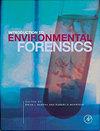未知含水层参数下的地下水污染源识别问题
IF 1.2
4区 环境科学与生态学
Q4 ENVIRONMENTAL SCIENCES
引用次数: 3
摘要
摘要地下水污染的高成本修复使得获取准确的污染源信息变得非常重要。这在这类自然不适定逆问题中是很难做到的。如果含水层参数也是未知的,问题就变得更具挑战性。为了解决这一困难,我们提出了交替方向遗传算法(ADGA)方法,并修改决策变量的数量级,以提高结果的准确性和计算效率。设计了7个场景,在不同性质、不同污染源数量、不同参数和测量误差的含水层中测试该方法的准确性。结果表明,将ADGA方法与决策变量数量级的修正相结合,对地下水污染源和含水层参数进行识别,可显著提高估算结果的准确性。在不同情况下,估计结果的NE值从9.81%下降到58.44%,计算时间减少了一半左右。此外,该方法适用于观测数据浓度存在测量误差的情况,以及多源位置和非均匀介质的情况。本文章由计算机程序翻译,如有差异,请以英文原文为准。
Groundwater pollution source identification problems with unknown aquifer parameters by ADGA approach
Abstract High-cost remediation of groundwater pollution makes it important to obtain exact information about the source. This is quite difficult to achieve in naturally ill-posed inverse problems of this kind. If the aquifer parameters are also unknown, the problem becomes even more challenging. To address this difficulty, we propose the alternating direction genetic algorithm (ADGA) approach, together with modification of the order of magnitude of the decision variables, to increase the accuracy of the results and computational efficiency. Seven scenarios were designed to test the accuracy of the proposed approach in aquifer with different properties, number of pollution sources, parameters and measurement errors. The results show that combining the ADGA approach with modification of the order of magnitude of the decision variables for identifying both groundwater pollution source and aquifer parameters significantly increases the accuracy of estimated results. The NE value for the estimated results decreased from 9.81% to 58.44% for different cases, and computation time is about half decreased. In addition, the approach is applicable in situations where concentrations of observational data with measurement error, and for multiple source locations and non-uniform media.
求助全文
通过发布文献求助,成功后即可免费获取论文全文。
去求助
来源期刊

Environmental Forensics
环境科学-环境科学
CiteScore
4.90
自引率
5.60%
发文量
23
审稿时长
3 months
期刊介绍:
Environmental Forensics provides a forum for scientific investigations that address environment contamination, its sources, and the historical reconstruction of its release into the environment. The context for investigations that form the published papers in the journal are often subjects to regulatory or legal proceedings, public scrutiny, and debate. In all contexts, rigorous scientific underpinnings guide the subject investigations.
Specifically, the journal is an international, quarterly, peer-reviewed publication offering scientific studies that explore or are relevant to the source, age, fate, transport, as well as human health and ecological effects of environmental contamination. Journal subject matter encompasses all aspects of contamination mentioned above within the environmental media of air, water, soil, sediments and biota. Data evaluation and analysis approaches are highlighted as well including multivariate statistical methods. Journal focus is on scientific and technical information, data, and critical analysis in the following areas:
-Contaminant Fingerprinting for source identification and/or age-dating, including (but not limited to) chemical, isotopic, chiral, mineralogical/microscopy techniques, DNA and tree-ring fingerprinting
-Specific Evaluative Techniques for source identification and/or age-dating including (but not limited to) historical document and aerial photography review, signature chemicals, atmospheric tracers and markets forensics, background concentration evaluations.
-Statistical Evaluation, Contaminant Modeling and Data Visualization
-Vapor Intrusion including delineating the source and background values of indoor air contamination
-Integrated Case Studies, employing environmental fate techniques
-Legal Considerations, including strategic considerations for environmental fate in litigation and arbitration, and regulatory statutes and actions
 求助内容:
求助内容: 应助结果提醒方式:
应助结果提醒方式:


